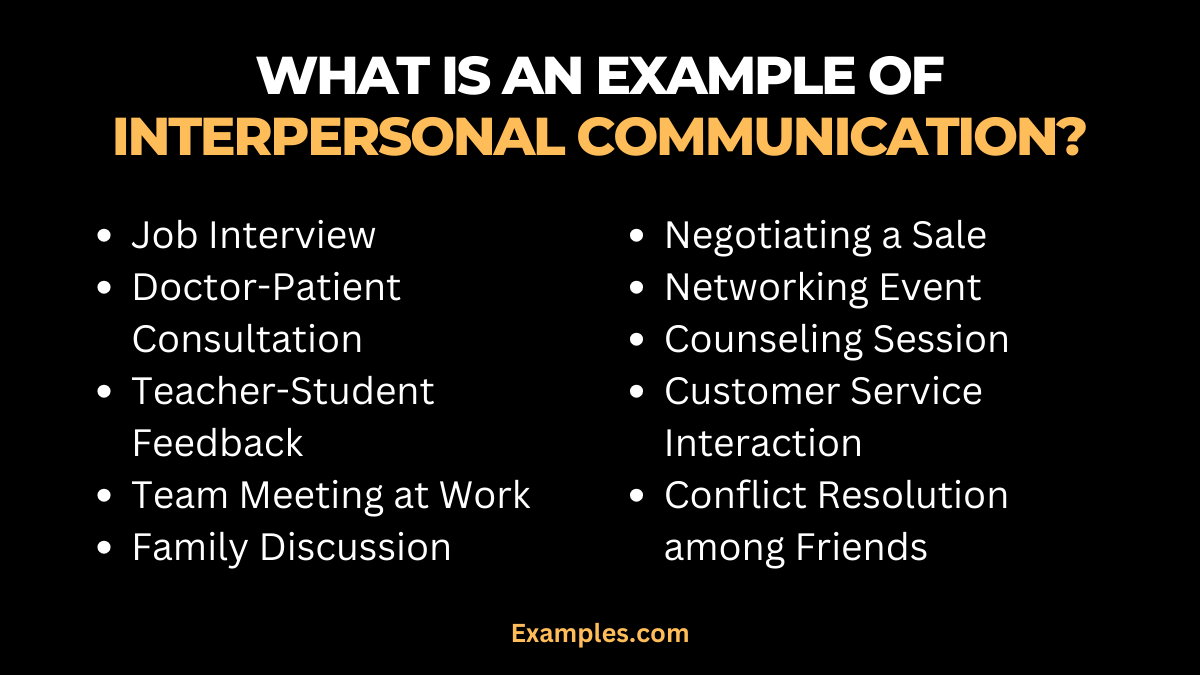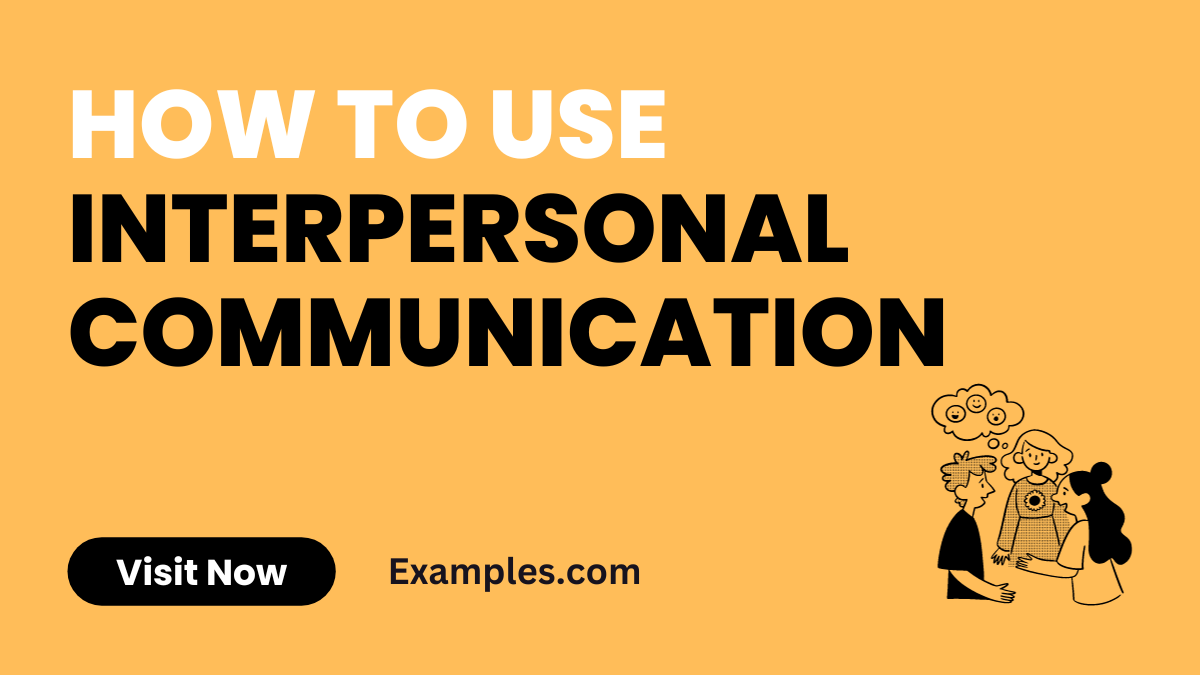How to Use Interpersonal Communication?
Discover the essence of effective interaction with our complete guide on How to Use Interpersonal Communication. This insightful introduction delves into various Interpersonal Communication Examples, illustrating how to skillfully navigate verbal and non-verbal cues in diverse settings. Whether it’s for personal growth or professional advancement, mastering these communication techniques can profoundly impact your interactions and relationships. Embrace the journey towards becoming a more effective communicator and enrich your connections with others.
What is an Example of Interpersonal Communication?

Interpersonal Communication plays a pivotal role in our daily interactions. Here are 10 unique and distinct examples, each with a brief explanation and sample communication sentences, showcasing the diverse applications of interpersonal skills.
- Job Interview: A candidate articulates their strengths and listens attentively to the interviewer.
- “I bring a strong skill set in project management. Could you elaborate on the team dynamics here?”
- Doctor-Patient Consultation: A doctor explains a diagnosis compassionately while a patient expresses concerns.
- “I understand your diagnosis, but I’m worried about the side effects. Can we discuss alternatives?”
- Teacher-Student Feedback: A teacher provides constructive feedback, and the student asks clarifying questions.
- “I appreciate your feedback. Can you suggest ways I can improve my essay structure?”
- Team Meeting at Work: Colleagues collaborate, sharing ideas and building on each other’s suggestions.
- “Your idea aligns well with our goals. Let’s explore how we can integrate it into our strategy.”
- Family Discussion: Family members express their opinions and feelings about a household decision.
- “I think we should consider everyone’s schedule before deciding on the vacation dates.”
- Negotiating a Sale: A salesperson uses persuasive communication, and the customer voices their needs.
- “This model offers the features you’re looking for. How does it fit into your budget?”
- Networking Event: Professionals exchange information and establish connections.
- “Your work in digital marketing is impressive. Could we exchange contact information?”
- Counseling Session: A counselor empathizes with a client, who shares personal experiences.
- “I feel overwhelmed lately. It’s comforting to have a space to talk about my challenges.”
- Customer Service Interaction: A customer service representative addresses a complaint with patience and understanding.
- “I understand your frustration. Let’s find a solution that works for you.”
- Conflict Resolution among Friends: Friends discuss a misunderstanding, aiming to resolve it amicably.
- “I didn’t mean to upset you. Can we talk about how to move forward from this?”
Each of these scenarios highlights the importance and versatility of Interpersonal Communication, demonstrating how effective communication can lead to positive outcomes in various aspects of life.
How to Use Interpersonal Communication Skills

Using Interpersonal Communication Skills effectively is crucial for building strong personal and professional relationships. Start by practicing active listening, which involves not just hearing but truly understanding the speaker’s message. Develop empathy to better understand others’ perspectives, and work on your verbal and non-verbal communication skills. Remember, body language, tone of voice, and facial expressions can significantly impact how your message is received. Regularly engaging in Interpersonal Communication helps in honing these skills, making your interactions more effective and meaningful.
Understanding Interpersonal Communication
To fully grasp What is Interpersonal Communication?, it’s important to recognize its multifaceted nature. It’s not just about the words used but also how they are said and the accompanying non-verbal signals. Understanding the Types of Interpersonal Communication such as verbal, non-verbal, written, listening, and emotional expression is key. Each type plays a unique role in how we convey and interpret messages. This understanding is crucial in various settings, from personal conversations to professional interactions, enhancing your ability to connect and communicate effectively.
How to Use Interpersonal Communication in the Job Search

In the job search, Interpersonal Communication can be a game-changer. Use it to network effectively, making connections that could lead to potential job opportunities. During interviews, demonstrate your communication skills by clearly articulating your thoughts and actively listening to interviewers. Tailor your resume and cover letters using principles of Effective Interpersonal Communication, highlighting your ability to interact well with others. Remember, employers value candidates who can seamlessly integrate into their team and communicate effectively, making your interpersonal skills a significant asset in your job search toolkit.
Mastering interpersonal communication is crucial for both personal and professional success. Effective communication involves much more than just speaking; it includes listening, understanding, and responding appropriately. The University of New Mexico emphasizes five essential communication skills: written, oral, non-verbal and visual, active listening, and contextual communication. Each skill plays a vital role in different contexts, such as professional, cross-cultural, and crisis communication.
In conclusion, mastering How to Use Interpersonal Communication is vital for both personal and professional success. By understanding its types, honing your skills, and applying them in contexts like job searches, you can significantly improve your interactions. This guide serves as a valuable resource, offering practical tips and insights to enhance your communication abilities and navigate the complexities of human interactions effectively.



